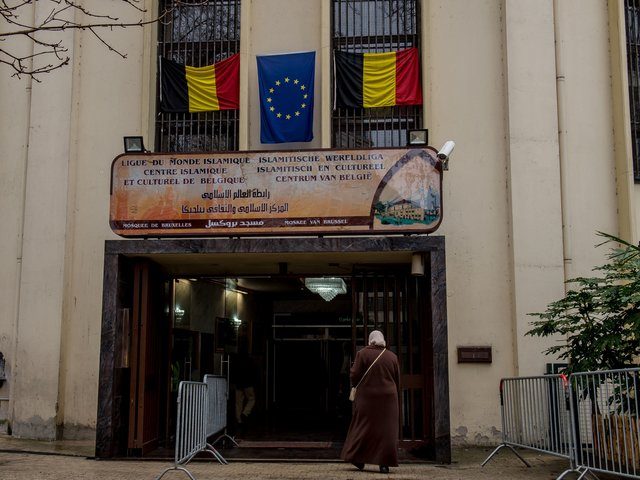The Belgian terror watchdog, the Unit for Coordination and Threat Analysis (OCAD), warns the number of radical Salafist imams in Belgian mosques is growing across the country.
The OCAD report, which was obtained by Belgian press this week but was published in October 2016, says Salafism is presenting a much more confrontational view to non-believers and is actively working to change Belgian society and make it more Islamic, Deredactie reports.
“A growing number of mosques and Islamic centres in Belgium are under the influence of a Wahhabi, Salafist proselytising apparatus. More and more mosques in Brussels, Antwerp and Mechelen are strictly Wahhabist,” the report notes.
The Salafists are also said to have expanded their reach through traditional media like DVDs as well as a growing presence on social media. According to the report, they even have satellite TV channels.
“Their efforts are often targeted at getting Muslims in the West to turn their backs on Western values and norms that they perceive to be violating the ‘rights of God’ revealed in the Quran,” they wrote.
“In the most extreme cases, this can lead to violence because according to Salafism jihad against infidels is warranted.”
The Belgian capital of Brussels has been a radical Islamic hot spot for years. The issue is most visible in the suburb of Molenbeek which has helped Belgium become the country that has produced more Islamic State fighters per capita than anywhere in Europe.
The residents of Molenbeek hid Paris terror attacker and Islamic State fighter Salah Abdeslam in the district for months before police were finally able to arrest him.
Following the Brussels terror attack in 2016, teachers in Molenbeek asked their students what they thought of the radical Islamist terrorists. 90 per cent of students aged between 17 and 18-years-old said the terrorists were “heroes“.
Since the start of the year, Belgian authorities have conducted a series of raids in Molenbeek to counter radical Islamic terrorism. Molenbeek was placed under a general lockdown mid-January which led to the arrest of three individuals. Just over a week later, eight properties suspected of housing radical Islamists were raided.
The spread of Salafism is not limited to Belgium. French politician Patrick Kanner said there were likely over a hundred neighbourhoods like Molenbeek in France.
“Of the hundreds of neighbourhoods involved, some have similarities in some aspects with Molenbeek: an extreme concentration of social problems, ultra-communitarianism, a black market economy, abandonment of public services, and local elected officials unfortunately bypassed,” he said.

COMMENTS
Please let us know if you're having issues with commenting.